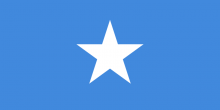Somalia: Lack of Civilian Protection and Accountability a Key Concern as Contact Group Meets
As the International Contact Group on Somalia meets in Kampala, Uganda this week, the East and Horn of Africa Human Rights Defenders Project once again highlight concerns about the continuing failures to protect civilians and lack of accountability for human rights violations in the country. EHAHRDP Executive Director, Hassan Shire Sheikh, raised the same concerns when he met with members of the UN Security Council in Nairobi last week as part of a high-level consultation with key stakeholders.
Gross human rights violations have been committed in Somalia by a range of actors since 1991, with virtual impunity. Writing to the Contact Group and Security Council, EHAHRDP called for the establishment of strong accountability mechanisms to prepare the way for peace and to ensure that lasting peace is attained.
One significant contributor to the prevailing culture of impunity is the lack of information on violations committed. Human rightsdefenders face numerous obstacles and risks that restrict the scope of their human rights research, documentation and advocacy work. The Transitional Federal Government and militia groups have shut down media outlets and prevented journalists from carrying out their work in the areas they control. In February 2011, Abdikarim Ahmed Bulhan, a journalist from Radio Shabelle, was detained and tortured by the Ahlu Sunna group. In the past four years, according to figures provided by the Committee to Protect Journalists, at least 20 journalists have died in Somalia as a direct result of their work. These attacks underline the need for effective protection mechanisms for all civilians, and for specific measures to protect human rights defenders targeted as a result of their work.
EHAHRDP recommends the creation of an international Commission of Inquiry and justice mechanisms to hold perpetrators from all sides to account. A permanent UN human rights presence should also be established in the country, under the auspices of the Office of the High Commissioner on Human Rights or United Nations Political Office on Somalia, to ensure regular, timely and accurate information on the human rights situation in the country and to provide protection measures to human rights defenders as risk.
To read the full text of the letter, please click here.
For more information, please contact:
Mr. Hassan Shire Sheikh, Executive Director of EHAHRDP and Chairperson of EHAHRD-Net on +256 772 753 753 or [email protected].
Ms. Rachel Nicholson, Advocacy Officer, EHAHRDP at [email protected]. +256 312 265 824 or +256 778 921 274.

